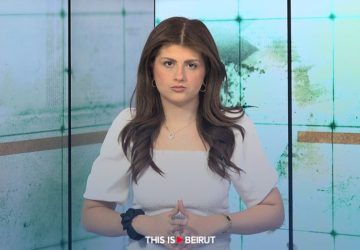Listen to the article
What is the significance of the Code of Money and Credit (CMC)? Why has the decision been made to amend it now? For what purpose? Professor Nasri Diab, a lawyer specialized in banking and financial law and one of the six members of the commission formed by caretaker Prime Minister Najib Mikati to make amendments to the CMC, provides explanations.
Caretaker Prime Minister Najib Mikati’s decision to initiate the process of amending the Code of Money and Credit (CMC), announced on August 16 in the Council of Ministers, has raised questions in political and financial circles. This text is part of a series of Lebanon’s significant “Codes,” which include the Code of Obligations and Contracts, the Commercial Code, the Penal Code, and both the Civil and Penal Procedure Codes. These codes hold great importance, and their modification, unlike ordinary laws, must be approached with caution.
What is the importance of the Code of Money and Credit? Why the decision to amend it now? Comprising more than 200 articles, are there any specific parts of it that are being particularly targeted? What is the purpose of amending this text?
For answers to these questions, This Is Beirut turned to Professor Nasri Diab, a lawyer specialized in banking and financial law and one of the six members of the commission formed by caretaker Prime Minister Najib Mikati to work on the modifications to this Code. This commission also includes former Ministers of Justice Ibrahim Najjar and Chakib Cortbaoui (the latter is also the former head of the Beirut Bar Association), former Vice Governor of the Central Bank of Lebanon Ghassan Ayache, Secretary General of the Special Investigation Commission (SIC) Abdul Hafiz Mansour and financial expert Hassan Saleh. The commission held its first meeting at the Grand Serail last Monday, chaired by Mikati and in the presence of caretaker Ministers of Justice Henry Khoury and Finance Youssef Khalil.
Dysfunctions
The timing of Mikati’s decision is clearly related to recent developments. In the past few weeks, the three reports commissioned in 2020 by the Lebanese state from Alvarez and Marsal, KPMG and Oliver Wyman have been made public. The first company was in charge of the forensic audit of the Central Bank of Lebanon (BDL), the second of evaluating the financial situation of the BDL, and the third of verifying the accounts of the BDL to identify the reasons for the imbalance in the financial situation of the banking sector.
The three reports, which must be read together and not separately, “describe the situation of the BDL and the banking and financial sector in Lebanon and the serious dysfunctions that have burdened them,” notes Professor Nasri Diab. “The functioning of the BDL: its relationship, on one hand, with the state, which it financed in ways that are not compatible with the CMC, but also its relationship with Lebanese banks, and these banks’ own relationships with their depositors, did not adhere to applicable standards,” he explains.
Diab further states that the laws that govern all these institutions and relationships must be reviewed, adding that “the Code of Money and Credit is the cornerstone of the legislation governing the Lebanese economy and the banking and financial system.” Codes, which stand above laws as they are more comprehensive and constitute a complete set, must be amended with caution. “However, all Lebanese Codes, except for the Code of Obligations and Contracts, which is the most venerable, have already undergone profound modifications. Why should it be any different for the Code of Money and Credit?” Diab asks. This was notably the case with each of the Civil and Penal Procedure Codes, which were not only amended but replaced entirely by new Codes, as well as the Commercial Code, which has been modified several times, and fundamentally in 2019.
The Code of Money and Credit, which governs currency issuance, the Central Bank and commercial banks, dates back to 1963 and is therefore 60 years old. A review of this text is only natural, especially given the events of recent years. However, this does not necessarily mean it will be completely overhauled.
As Professor Diab points out, some dysfunctions may be due to poor applications of the text rather than the provisions of the Code itself. He gives the example of Articles 90 and 91 of the CMC, which establish the general principle that the BDL does not finance the state, with specific and limited exceptions. Yet the BDL financed the Lebanese state for decades, and the state did not cover the losses of the BDL despite its obligation to do so under Article 113 of the CMC. The Oliver Wyman report is important in this regard.
Powers within the BDL
Following the publication of the three reports, numerous calls were made to review the regulations governing the financial sector. One of these calls was notably made by Saadeh Chami, the Deputy Prime Minister responsible for Lebanon’s negotiations with the International Monetary Fund, where he previously held high positions.
In a letter addressed to the ministers on August 16, Chami explicitly requests that the Code of Money and Credit be amended and that “the role of the Central Council of the BDL be strengthened, as recommended by the government’s reform plan.” He also wishes for the BDL to be held accountable to Parliament. Does Chami’s statement mean that this amendment was requested by the IMF? Does it aim to specifically limit the powers of the BDL governor and increase the powers of other organs of the Central Bank?
As Diab notes, “The timing of any reform is always a subject of controversy: if it had been decided before the publication of the three reports, people would have asked why not wait for this publication; having been decided after the publication, some find the timing suspect. This way of doing things is the best recipe for stagnation.”
The Code of Money and Credit grants “important prerogatives” to the Central Bank of Lebanon: Article 70 states that this bank has a mission to maintain the stability of the banking sector, the economy and the Lebanese pound.
Diab emphasizes that the issue is not about limiting the governor’s powers or not. The Code of Money and Credit presents a complex decision-making process within the BDL, which is not limited to the powers of the governor but encompasses a Central Council (including the directors-general of the two Ministries of Finance and Economy), a government commissioner, the Ministry of Finance, etc. Focusing on the powers of one of these bodies without considering the others is counterproductive and is not on the agenda at all.
In any case, given that caretaker Minister of Justice Henri Khoury has stated twice that “fundamental issues are untouchable, but some points may undergo aesthetic modifications,” it is doubtful that the commission members, as well as Mikati and Chami, would accept the commission’s role being limited to such modifications.
Learning from the past
So, what is the objective of amending this Code? One is to “learn from the past and propose amendments that will prevent dysfunctions from recurring in the future,” Diab claims, adding, “Many legitimate questions have been coming up for years now. How did we come to use depositors’ money and mandatory reserves on such a massive scale? How was the state able to draw so extensively from the BDL’s money, even though Article 90 of the CMC does not allow it, and why does it refuse to cover the losses of the BDL, even though Article 113 of the CMC very clearly obliges it to do so? What did the auditors of the BDL see? How, in 30 years, were there never any formal and public divergences expressed about the thousands of decisions made at the meetings of the Central Council of the BDL? What did the government commissioner at the BDL do, and what did the directors-general of the Ministries of Finance and Economy, who are members of the Central Council, do? These are questions whose answers must be sought both in the text and application of the CMC.”
In any case, the commission is tasked with drafting a proposal to amend the Code of Money and Credit, which it will submit to the Prime Minister who will then decide on the next steps. Either the government will submit a bill, or members of Parliament will take on the task of presenting a legislative proposal in this regard. In either case, the text will be submitted to Parliament for committee examination before it reaches the plenary session. The road ahead is still long, as the chances of holding a legislative parliamentary session are very slim before the election of a new president.





